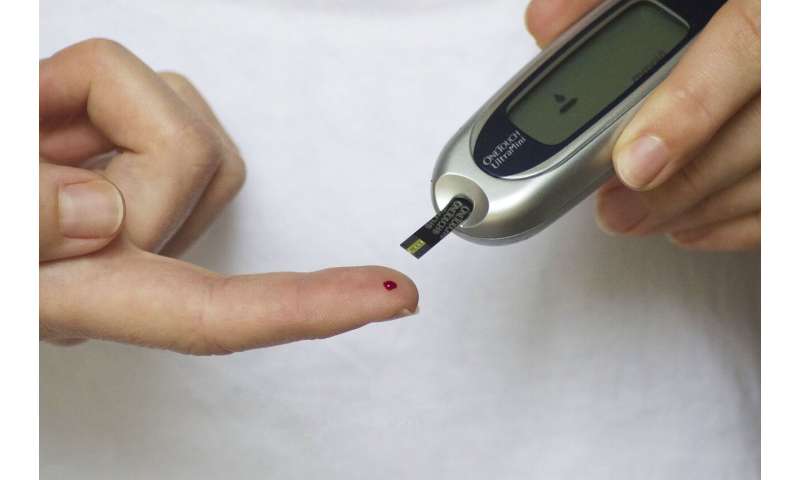
Disturbing new research published in Diabetologia (the journal of the European Association for the Study of Diabetes) shows that more than half of men (55%) and some two thirds (65%) of women currently aged 20 years in India will likely develop diabetes in their life time, with most of those cases (around 95%) likely to be type 2 diabetes (T2D). The research is from a team of authors in India, the UK and the U.S., led by Dr. Shammi Luhar, Department of Public Health and Primary Care, University of Cambridge, UK.
India already has a significant health burden caused by diabetes: estimates suggest 77 million adults currently have diabetes and this number is expected to almost double to 134 million by 2045. Urbanisation, decreasing diet quality and decreased levels of physical activity are all contributing to this hidden epidemic. Since urban centres are continuing to grow rapidly across the country, the authors, in this new research, aimed to estimate the probability of a metropolitan (urban-based) Indian of any age or body mass index (BMI) developing diabetes in their lifetime.
The data for the study came from using age-, sex- and BMI-specific incidence rates of diabetes in urban India taken from the Centre for Cardiometabolic Risk Reduction in South Asia (2010-2018); age-, sex- and urban-specific rates of mortality from period lifetables reported by the Government of India (2014); and prevalence of diabetes from the Indian Council for Medical Research INdia DIABetes study (2008-2015).
The authors estimate that lifetime risk of developing diabetes in 20-year-old men and women free of diabetes today is 56% and 65%, respectively. Women generally had a higher lifetime risk across the lifespan. Remaining lifetime risk of developing diabetes declined with age: the authors estimated that for those currently aged 60 years and currently free of diabetes, around 38% of women and 28% of men would go on to develop diabetes.
Obesity had a substantial impact on these projections. Lifetime risk was highest among obese metropolitan Indians: 86% among 20-year-old women and 87% among men. People with lower BMI had considerably higher diabetes-free life expectancy: obese 20-year-olds were estimated to have around half (46-52%) of their remaining life years free from diabetes. However, those with normal or underweight BMI were projected to live out most of their remaining years (80-85%) diabetes-free.
The authors say: “The remarkably high lifetime risk of developing diabetes and the low diabetes-free life expectancy in India’s metropolitan cities, especially for individuals with high BMI, implies that interventions targeting the incidence of diabetes may be of paramount importance moving forward.”
They note that metropolitan Indians at every age and BMI have an alarmingly high probability of developing diabetes compared with results from high income countries, and that proactive efforts to prevent diabetes in metropolitan cities are urgently needed, given the rapid increase in urban obesogenic environments across the country. In addition to these risk factors, Indians and other South Asian populations already have a relatively high predisposition to developing diabetes at both lower ages (up to a decade earlier) and lower BMIs when compared with white European populations.
One study from the U.S., using data from 2000-2011, reported a lifetime risk diabetes of 40% among men and women aged 20 years from the general population. The authors say: “Our new estimates from India are much closer to estimates of lifetime risk of diabetes of 20-year olds among the black and Hispanic populations in the U.S. (above 50%), groups considered at a higher risk of developing diabetes than the general population.”
Dr. Luhar says: “Such high probabilities of developing diabetes will have severely negative implications for India’s already strained health system and also out-of-pocket expenditure on diabetes treatment by patients, unless diabetes is immediately acknowledged for what it is: one of the most important threats to public health in India.”
Professor Viswanathan Mohan of the Madras Diabetes Research Foundation in Chennai and co-author of the paper added: “Despite these very high predicted lifetime risks of diabetes, it is possible to prevent or postpone diabetes by effective lifestyle modification, such as following a healthy diet, by increasing physical activity and reducing body weight in those who are obese or overweight.”
Source: Read Full Article
